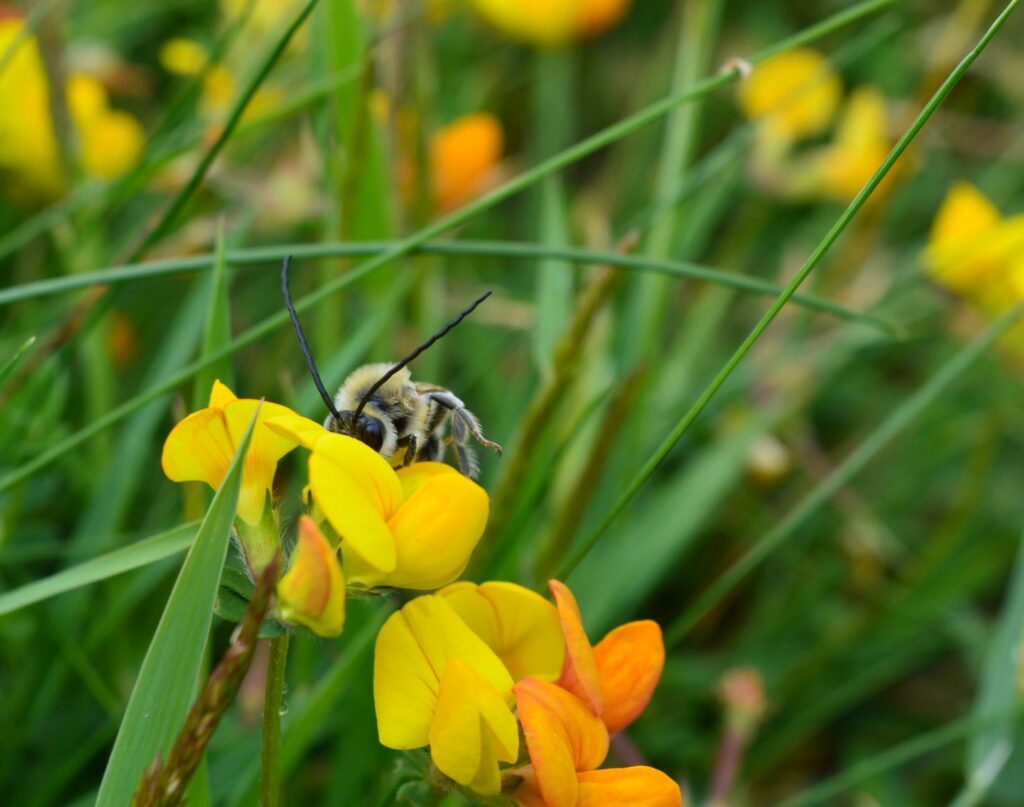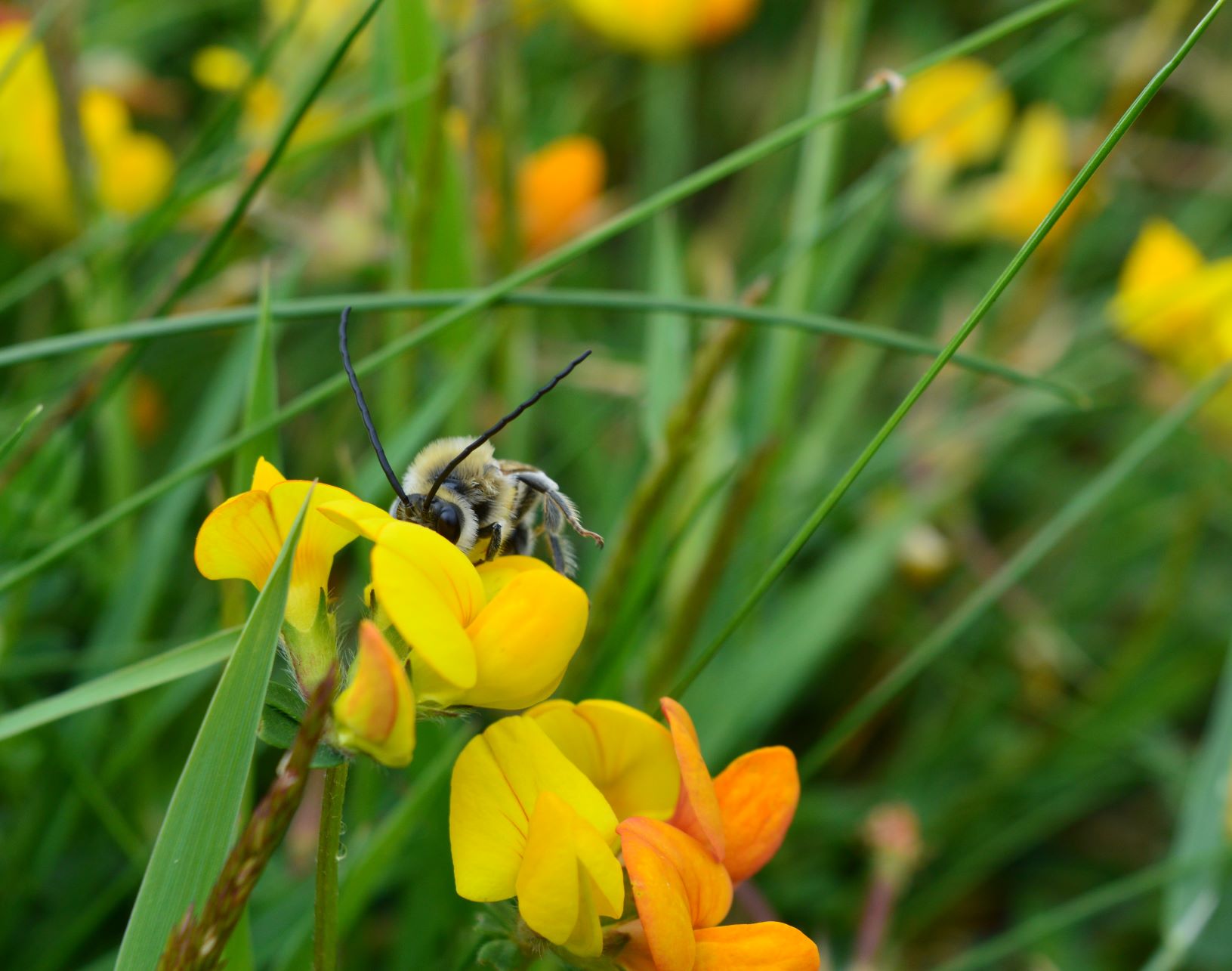The Long-horned Bee, like many insects, has suffered owing to the loss of flower-rich grasslands. Although previously widespread, the species is now restricted mostly to southern and western coasts. The bee’s populations in Cornwall are of national importance, but they are threatened by a lack of suitable foraging resources and the loss of nesting sites due to coastal erosion. Patrick Saunders provides an introduction to the ecology of the Cornish colonies and suggests some simple means of reversing their fortunes.
The Long-horned Bee Eucera longicornis is named for the males’ distinctive, oversized antennae. These are thought to provide enhanced sensitivity to odours, and have in related species been found to contain three times as many olfactory receptor neurons as the modestly sized antennae of females (Streinzer et al. 2013).

